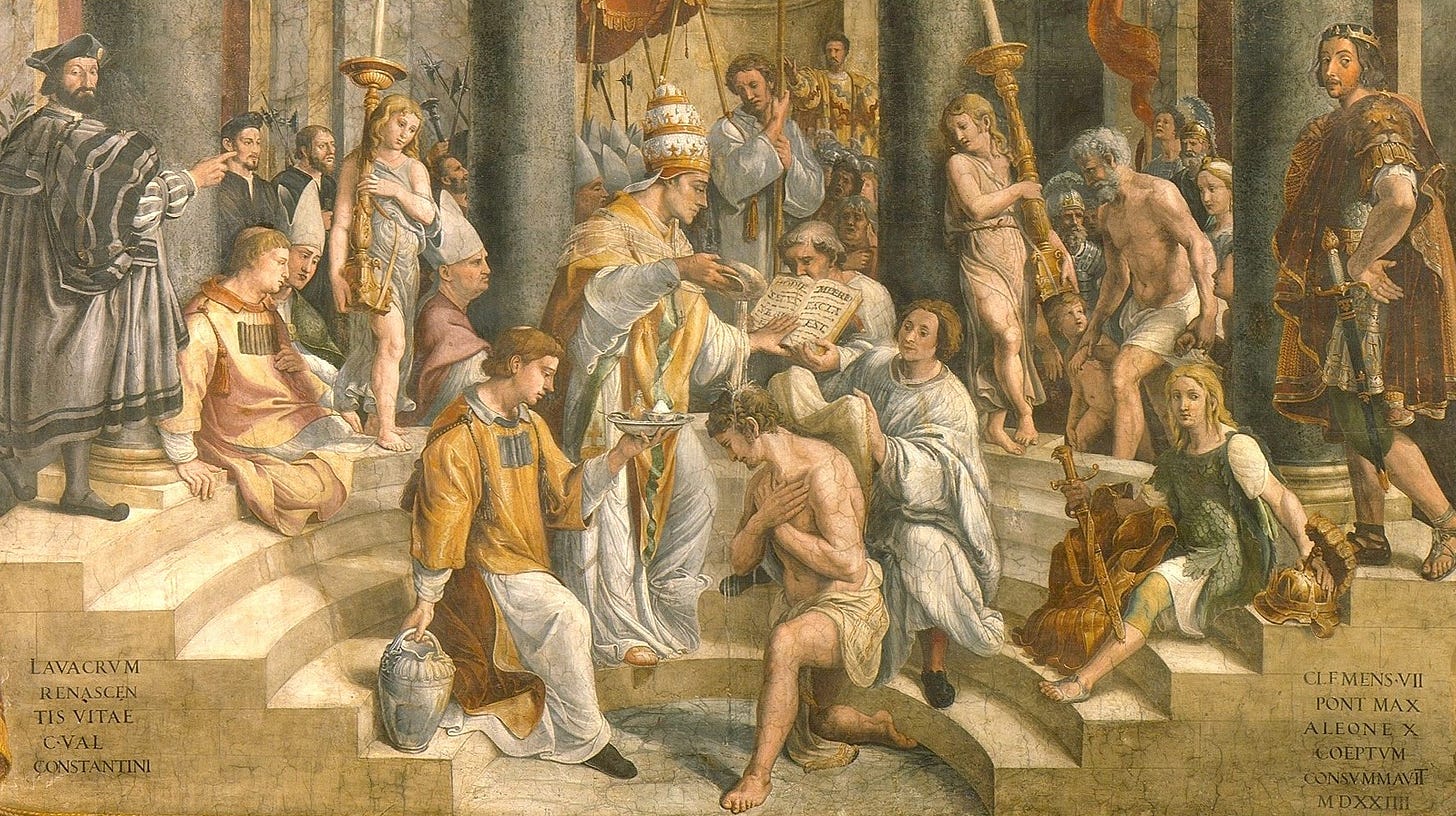'The Wedding Garment' and membership of the Church
A popular interpretation of the parable sees 'the wedding garment' as supernatural grace in the soul – but it also has an application to membership of the Church.

A popular interpretation of the parable sees ‘the wedding garment’ as supernatural grace in the soul – but it also has an application to membership of the Church.
Editor’s Notes
In this part, Fr Coleridge shows us…
How the parable shows that entrance into the Church is not enough without fidelity.
That the King’s scrutiny represents Christ’s judgment even of those already inside.
Why the “wedding garment” signifies lawful membership, visible obedience, and right disposition.
The parable teaches that unworthy use of what the Church gives us leads to judgment, and that while membership is necessary, it is no protection against being cast out if one is found unworthy.
For more context on this chapter, see Part I.
The Wedding of the King’s Son
Passiontide, Part I
Chapter VI
St. Matt. xxii. 1-14; Story of the Gospels, § 137.
Burns and Oates, London, 1886.
(Read at Holy Mass on the Nineteenth Sunday after Pentecost)
Why did Christ speak of a wedding feast after condemning the priests?
The Parable of the Wedding Feast and the judgement of the wicked
The bidden guests
Our Lord proceeds with the parable on the lines on which it had first been delivered. In His former teaching He had seemed to draw the distinction between the first and second sending of the servants to bring in guests, first into the streets and lanes, and then into the highways and hedges, and something has been said in the proper place as to the truths which may be illustrated by the distinction.
There is in the first parable more stress laid on the desire of the lord that his house may be filled at any cost, save that of bringing in those who had been in the first instance invited. In the present parable there is less on this head. The first bidden guests are declared to be unworthy, and the servants are sent out to the highways to bring in all that they find. They gather together all, ‘good and bad,’ it is especially said, ‘and the marriage is filled with guests.’
Here the great truth is set forth once again, that the law of substitution characterizes the Kingdom of God. That law is always being enforced, but it was never to be more signally enforced than in the first age of the Church, in the rejection of the Jews and the vocation of the Gentiles, for which our Lord seems at this time to have been anxious to prepare the minds of the disciples.
The truth had, indeed, been enunciated at the very beginning of the Gospel preaching, when St. John Baptist had warned the Jews against the danger of trusting their ancestors alone as sufficient to secure for them the benefits of the Kingdom, ‘for God is able of these stones to raise up children unto Abraham.’ But the more immediate point of doctrine which forms the principal feature in this parable, is the truth that not even admission to all the Gospel privileges is enough unless they are received and used with the required dispositions, and on the conditions laid down by God. This is set forth in the concluding section of the parable.
The King going in
‘And the King went in to see the guests. And he saw there a man who had not on a wedding garment. And he said to him, Friend, how camest thou in hither, not having on a wedding garment? But he was silent. Then the King said to the waiters, Bind his hands and feet, and cast him into the exterior darkness, there shall be weeping and gnashing of teeth.’
The action of the King going in to see or look upon the guests seems to imply that the banquet was not possibly to begin without it, as if there was a certain examination to be made of the guests, or as if the King was to have the satisfaction of gazing upon them and welcoming them.
This Greek word,1 used for ‘seeing,’ often seems to be used in the sense of considering and enjoying the sight as something rare or at least pleasurable. There can be no doubt that in this context it signifies something of the same kind—the scrutinizing look under which all the guests in the Gospel Kingdom will have passed before they begin to enjoy it, as well as the delight which God will vouchsafe to take in the saints when they are at last assembled together for the happiness of Heaven.
But there are many intimations in this passage that the parable describes, not the ultimate enjoyment of the Heavenly Feast so much as the banquet of good things, blessings, and graces almost without end, that are the inheritance of the children of the Church here below.
Father Coleridge Reader is a labour of love. But curating, cleaning up and publishing these texts takes real work.
To keep this project going, and to make more of this treasury available, we rely on reader support. Some posts are reserved for members to sustain this mission.
We’re trying to keep something precious alive.
If you’ve benefited, consider joining us as a subscriber. It makes a real difference.

